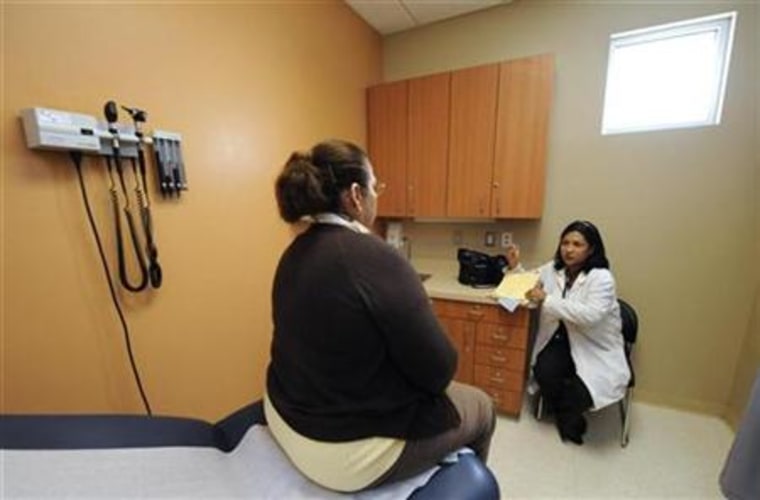When patients are given the responsibility for medical decisions, they may be less willing to try a potentially risky treatment, a study published Monday suggests.
The study, of 216 patients with arthritis and other similar diseases, tested patients' willingness to take a hypothetical "new" drug that carried important benefits but also a small risk of serious side effects.
It turned out that patients were less willing to try the drug when they were given complete power over the decision than when a doctor advised them to take the medication.
When given a choice rather than a doctor's order, the study found, patients appeared to give greater thought to the potential side effects of the drug.
The findings, published in the journal Arthritis Care & Research, have implications for the trend toward greater patient involvement in health care. Studies have shown that patients who are more active in their care tend to fare better. However, there has been less research into what happens when actual decision-making is shifted over to patients.
The current results "suggest that asking some patients to assume more responsibility for decisions involving their healthcare may have unanticipated consequences," lead researcher Dr. Liana Fraenkel, of the Yale University School of Medicine, told Reuters Health in an e-mail.
For the study, Fraenkel and colleague Dr. Ellen Peters had patients view one of two videos. Each featured a doctor describing a hypothetical new medication for which the patients were candidates — a pain drug or a drug designed to lower heart disease risk.
Each drug was described as "very effective" and generally safe, but with a small risk of a serious side effect: either a breakdown of tissue in the jaw or a rare but often fatal infection that causes brain inflammation. (Both of those are side effects of drugs currently on the market.)
After seeing the video, patients rated their willingness to take the drug under two circumstances: in one, their doctor said they should take the drug and wrote a prescription; in the other, the decision was left completely to the patient.
Overall, the researchers found, patients were less open to taking the drug when the decision was theirs alone. They also expressed greater worries over side effects.
"The shift of responsibility from M.D. to patient may cause some patients to pay more attention to risks," Fraenkel explained.
She and Peters note that studies in other areas have suggested that when people have a choice about whether to take a potentially risky action, they consider those risks more carefully. For example, city dwellers who can opt to drive or take the bus are more likely to see driving as a risky endeavor than do rural residents — who have no choice but to drive.
According to Fraenkel, the current findings suggest that to make the most informed decisions about medical treatments, patients need help in weighing the potential benefits against the risks.
"I would argue that these results highlight the need to ensure that patients have the proper support to be able to participate in decision making," she said.
